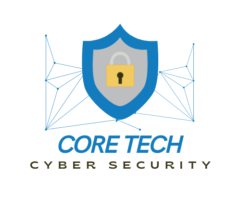As the digital world continues to expand in 2024, protecting sensitive data is more crucial than ever. With the increasing frequency of cyberattacks, data breaches, and privacy violations, encrypting your files is one of the most effective ways to ensure your personal and professional information stays secure. Encryption provides a layer of protection that keeps your data safe from unauthorized access, even if it falls into the wrong hands. Here’s why file encryption should be a top priority in 2024.
1. Growing Cybersecurity Threats
Cybercriminals are becoming more sophisticated, and their methods are evolving rapidly. From ransomware attacks to phishing schemes, the risks of having your data compromised are higher than ever. Encrypting your files ensures that, even if hackers manage to breach your system, they won’t be able to access the contents of your files without the decryption key.
Key Benefits:
- Protection against unauthorized access to your files.
- Increased security in the event of a data breach.
- Peace of mind knowing your sensitive information is encrypted.
2. Compliance with Data Protection Regulations
With regulations like the General Data Protection Regulation (GDPR), California Consumer Privacy Act (CCPA), and other global data privacy laws, businesses are required to protect personal information. Encrypting sensitive files ensures compliance with these regulations, reducing the risk of hefty fines and legal consequences due to data mishandling or breaches.
Key Benefits:
- Stay compliant with data privacy laws and avoid penalties.
- Protect customer and employee data.
- Ensure ethical handling of sensitive information.
3. Protecting Personal Privacy
In today’s digital age, our personal lives are increasingly stored online—from private photos and documents to financial and healthcare records. Without encryption, this data is vulnerable to theft and misuse. By encrypting your files, you can protect your personal privacy from unauthorized access, whether it’s from cybercriminals or even unwanted surveillance.
Key Benefits:
- Safeguard personal information like tax records, photos, and private messages.
- Prevent identity theft and data misuse.
- Control over who can access your personal files.
4. Securing Cloud Storage
As more people and businesses rely on cloud storage services to store data, securing files stored online is paramount. Cloud providers may have their own security measures in place, but encrypting your files before uploading them adds an extra layer of protection. Even if your cloud provider experiences a breach, your data will remain inaccessible without the decryption key.
Key Benefits:
- Additional security for data stored in the cloud.
- Protection against breaches of cloud service providers.
- Control over the encryption and decryption of your files.
5. Safeguarding Against Ransomware
Ransomware attacks—where cybercriminals encrypt your files and demand payment for their release—are on the rise. Encrypting your files with your own encryption keys can act as a safeguard against such attacks. If your files are already encrypted, hackers will have a much harder time locking you out of your data, reducing the impact of a ransomware attack.
Key Benefits:
- Reduced risk of losing access to your files during a ransomware attack.
- Control over file encryption with your own keys.
- Enhanced defense against malicious encryption by attackers.
6. Protecting Business Data
For businesses, file encryption is vital for protecting confidential information, such as intellectual property, customer data, and financial records. Encryption ensures that even if a company’s files are accessed by unauthorized individuals, the data remains unreadable. This helps businesses protect trade secrets and maintain customer trust by ensuring that sensitive information is kept secure.
Key Benefits:
- Protection of sensitive business data from competitors and cybercriminals.
- Enhanced trust and reputation by safeguarding customer information.
- Secure sharing of encrypted files with employees and partners.
7. Easy and Accessible Encryption Tools
In 2024, encrypting your files is easier than ever with a range of tools available for both individuals and businesses. Solutions like BitLocker, VeraCrypt, and NordLocker provide user-friendly encryption options that require minimal technical expertise. These tools allow you to easily encrypt files, folders, or even entire drives, ensuring that your data remains protected.
Key Benefits:
- Simple setup and management of encrypted files.
- Flexible encryption options for different types of data.
- Wide availability of encryption tools for personal and business use.
Conclusion
As cybersecurity threats continue to escalate in 2024, file encryption has become an essential practice for protecting sensitive information. Whether you’re concerned about personal privacy, business data security, or regulatory compliance, encrypting your files provides a robust defense against unauthorized access and data breaches. By taking control of your file encryption, you can safeguard your digital life and ensure that your data remains secure, no matter the threat.
